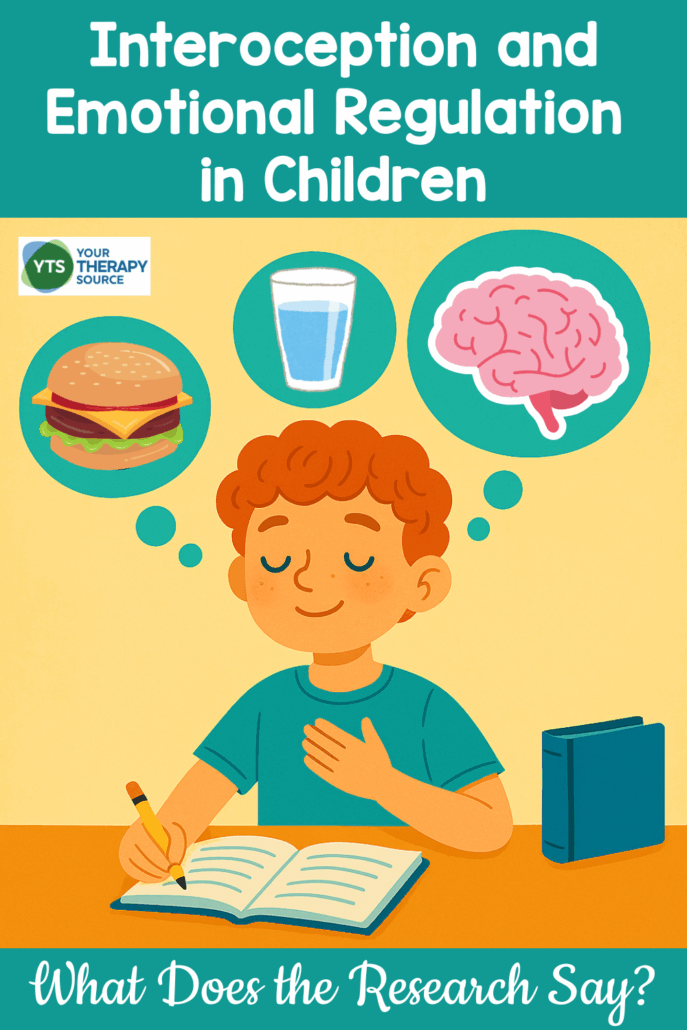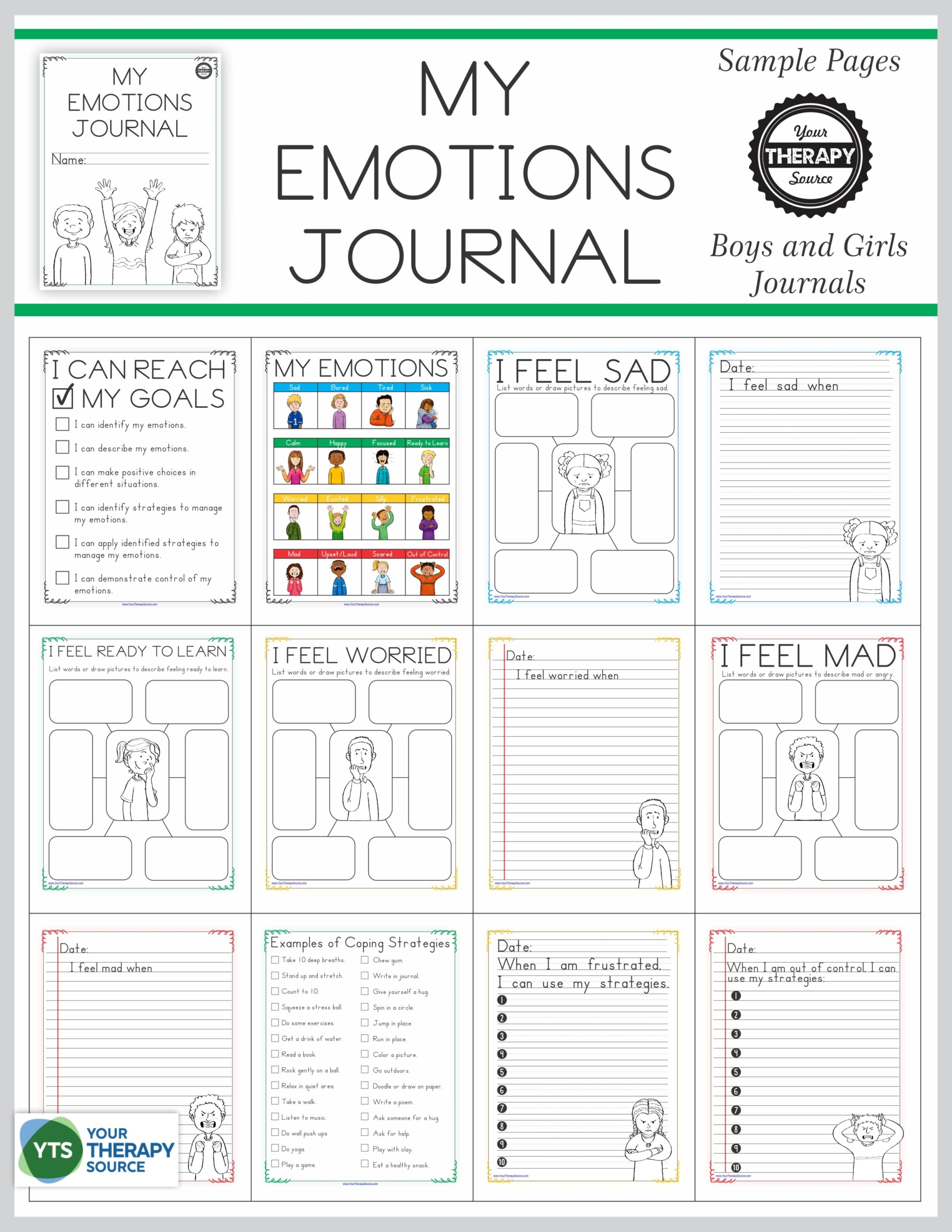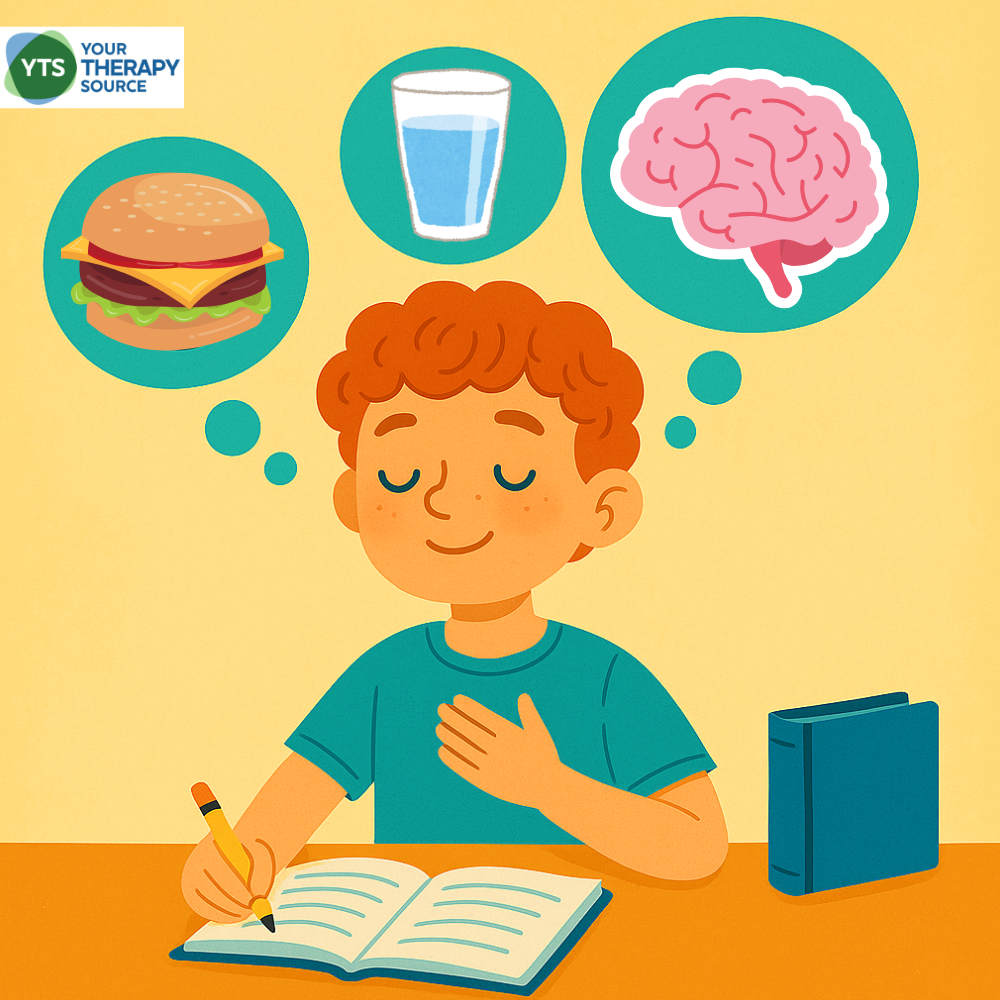Interoception and Emotional Regulation in Children
Interoception is often called the “eighth sense.” It helps us notice what’s happening inside our bodies—like when we feel hungry, nervous, tired, or excited. For children, learning to understand these body signals is a key part of building emotional balance and staying focused during everyday tasks. A recent research study looked closely at interoception and emotional regulation in children. They explored how interoceptive awareness is connected to emotional and academic self-regulation in school-age children.

What Is Interoceptive Awareness?
Interoceptive awareness is the ability to recognize and make sense of body signals such as heart rate, breathing, body temperature, or the feeling of needing to eat or rest. These signals also influence how we feel emotionally. When children are aware of their body’s signals, they can label what they’re feeling and decide what to do next. This might include calming strategies, movement breaks, or asking for help. As children grow, their ability to notice, name, and manage these sensations improves.
How Interoception and Emotional Regulation Are Connected
In a recent study, 25 children between ages 9 and 12 filled out questionnaires about their interoceptive awareness, emotional coping strategies, and school motivation. The results showed clear connections between these areas.
Here’s what the researchers found:
- Children who were less likely to distract themselves from body signals were more likely to use helpful thinking strategies, such as planning and reframing negative thoughts.
- Children who listened to their bodies showed better problem-solving skills and a stronger ability to plan after something upsetting happened.
- Those with strong self-regulation of body signals tended to use positive emotional strategies like thinking of the bright side or focusing on what they could control.
- Children who trusted their internal body signals also showed higher motivation to complete schoolwork and stick with tasks, especially when the work felt meaningful to them.
One of the strongest predictors of both emotional and academic self-regulation was the child’s ability to trust their own body. When kids felt safe with their internal signals, they were better at staying calm, solving problems, and keeping themselves motivated.
This supports other research showing that body awareness plays a major role in emotional well-being and daily success.

Emotional Regulation Worksheets – For Boys and Girls
Why This Matters for Therapists, Teachers, and Parents
When children have trouble understanding their internal signals, it can be hard for them to stay calm, focused, or socially engaged. This is especially true for children with sensory processing differences, ADHD, or autism.
Helping children tune into their bodies can improve:
- Emotional regulation during challenging moments
- Social interactions with peers
- Focus during learning activities
- Motivation to try and finish tasks
Therapists, teachers, and parents can support interoceptive development using strategies like breathing exercises, check-in visuals, mindfulness games, and movement breaks. These tools help children notice their body signals and learn what helps them feel steady and in control.
More Helpful Resources on Interoception and Emotional Regulation in Children
- What Is Interoception?
- Interoception and Proprioception
- Sensory Processing and Interoception
- Interoception Awareness: Understanding Body Language to Support Self-Regulation
- How to Measure Interoception
Reference
Cheung, H. Y. L., Brown, T., Yu, M. L., & Cheung, P. P. (2024). The relationship between school-age Children’s self-reported perceptions of their interoceptive awareness and emotional regulation: an exploratory study. Journal of Occupational Therapy, Schools, & Early Intervention, 17(3), 704-730.



